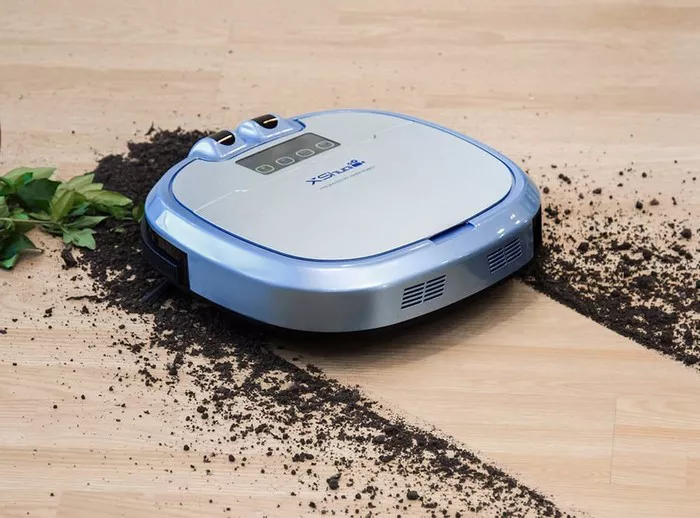The Case for the Vacuum Cleaner
Efficiency: Vacuum cleaners boast unparalleled efficiency when it comes to deep cleaning carpets, rugs, and upholstery. Their powerful suction capabilities ensure a thorough clean, removing dirt, dust, and even stubborn pet hair with ease. Compared to the manual labor required with a broom, vacuum cleaners can complete the task in significantly less time.
Versatility: Unlike brooms, which are primarily designed for sweeping floors, vacuum cleaners offer versatility in cleaning various surfaces. With a plethora of attachments and settings, vacuum cleaners can tackle not only hardwood floors and tiles but also curtains, upholstery, and even car interiors with ease.
Allergen Removal: For those with allergies or respiratory issues, vacuum cleaners equipped with HEPA filters are a game-changer. These filters can trap allergens like pollen, pet dander, and dust mites, providing a cleaner and healthier indoor environment.
Time-Saving: Thanks to their ability to cover large areas quickly and navigate around furniture and obstacles, vacuum cleaners offer a time-saving solution to everyday cleaning tasks. With features like automated robot vacuums, you can even set them to clean while you focus on other chores or activities.
The Case for the Broom
Affordability: Brooms are typically more affordable than vacuum cleaners, making them a budget-friendly option for maintaining a clean home. With minimal upfront cost and no ongoing expenses like electricity or filter replacements, a broom is a cost-effective cleaning tool.
Ease of Use: Using a broom requires minimal setup and maintenance, making it accessible to individuals of all ages and physical abilities. There’s no need to worry about cords, batteries, or complex settings—simply grab the broom and start sweeping.
Quiet Operation: Unlike the noisy hum of a vacuum cleaner, sweeping with a broom produces minimal noise, making it a more discreet option for cleaning, especially in shared living spaces or during quiet hours. This quiet operation also makes it suitable for use in environments where noise may be a concern, such as offices or libraries.
Environmental Impact: Brooms have minimal environmental impact compared to vacuum cleaners, which consume electricity during use. By opting for a broom, you’re reducing your carbon footprint and minimizing energy consumption—a small but significant step towards sustainability.
Can Vacuum Cleaner Replace Broom?
While vacuum cleaners offer undeniable advantages in terms of efficiency, versatility, and allergen removal, there are certain situations where a broom still holds its ground. For quick cleanups, spot cleaning, or reaching tight spaces where a vacuum cleaner might struggle, a broom can be a practical choice. However, for comprehensive cleaning tasks, especially on carpeted surfaces or for removing allergens, a vacuum cleaner is often the superior option. Ultimately, the decision to replace a broom with a vacuum cleaner depends on individual preferences, cleaning needs, and budget constraints.
Conclusion
In the age-old debate of broom versus vacuum cleaner, there is no clear winner. Both cleaning tools have their strengths and weaknesses, and the best choice ultimately depends on your specific cleaning requirements and personal preferences. If efficiency, versatility, and allergen removal are top priorities, a vacuum cleaner may be the ideal solution for maintaining a clean and healthy home. However, for those on a budget or seeking a quieter, more environmentally friendly option, the humble broom still holds its own. Whether you choose to stick with tradition or embrace modern technology, the key is to find a cleaning routine that works best for you and your home.
FAQs
Q1: Can a vacuum cleaner replace a broom for outdoor cleaning?
A1: While vacuum cleaners are primarily designed for indoor use, there are specialized models available that can handle outdoor cleaning tasks such as patios, decks, and garages. These outdoor vacuum cleaners are designed to withstand outdoor conditions and can effectively remove leaves, debris, and dirt from outdoor surfaces. However, for sweeping large outdoor areas or tackling heavy debris, a traditional broom may still be more practical and efficient.
Q2: Are there any drawbacks to using a vacuum cleaner instead of a broom?
A2: One potential drawback of using a vacuum cleaner is the need for electricity to power the device, which may not be readily available in all outdoor cleaning situations. Additionally, vacuum cleaners can be bulkier and heavier than brooms, making them less convenient to transport and maneuver in outdoor environments. It’s also worth noting that vacuum cleaners may struggle to effectively clean certain outdoor surfaces, such as uneven terrain or gravel pathways, where a broom may be more effective.
Q3: Can a vacuum cleaner damage delicate outdoor surfaces?
A3: Some vacuum cleaners may be too powerful for delicate outdoor surfaces such as wooden decks or delicate landscaping features, potentially causing scratches, dents, or other damage. It’s essential to choose a vacuum cleaner with adjustable settings or specialized attachments designed for outdoor use to minimize the risk of damage to delicate surfaces. Additionally, exercising caution and using gentle cleaning techniques can help prevent damage while still achieving a thorough clean.

